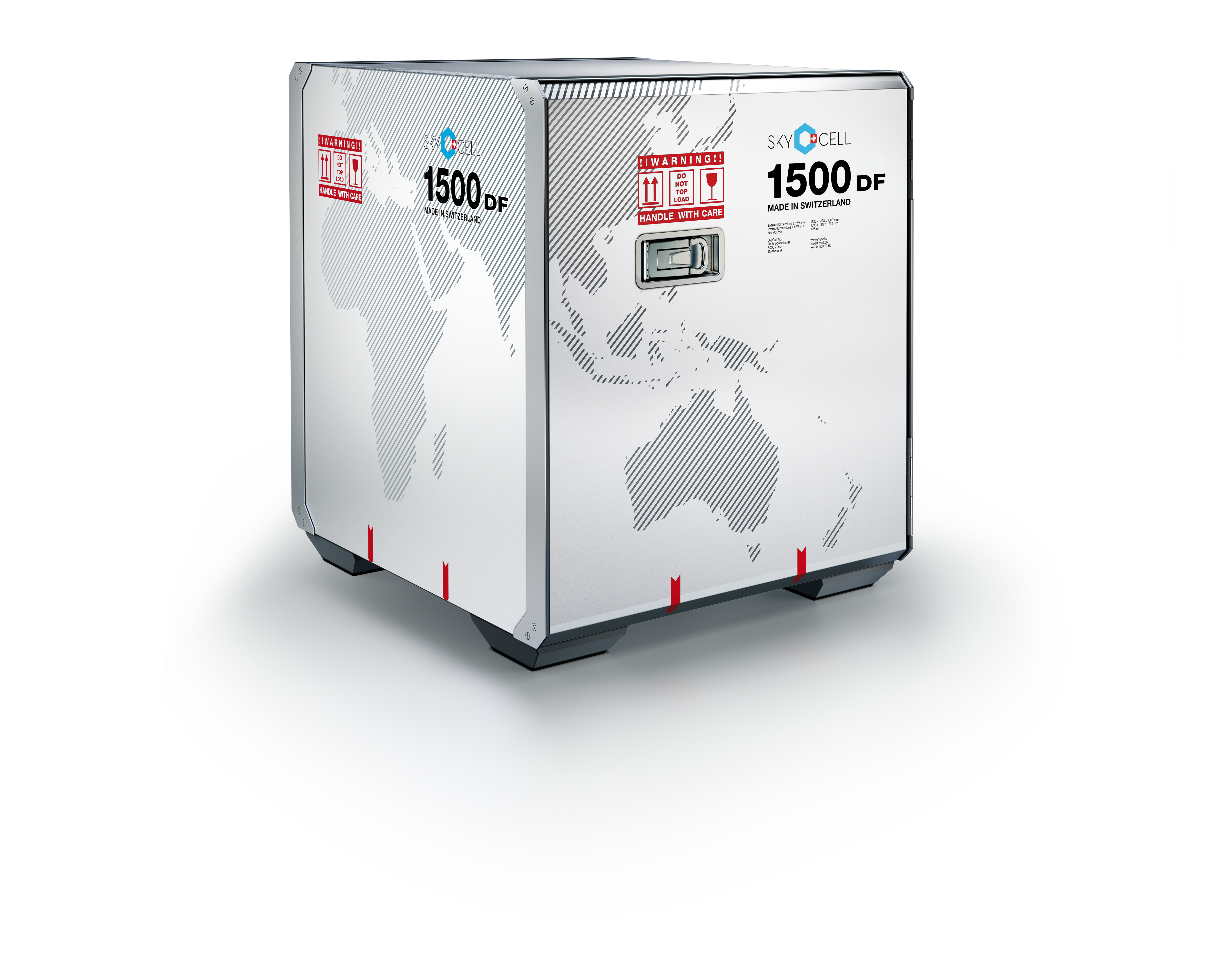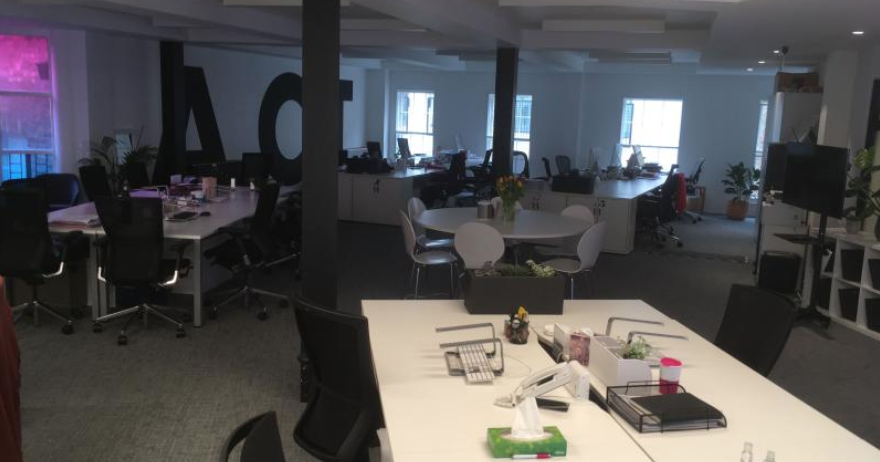Chris Lowe is the founder of NOTWICS, an investor relations and growth strategy consultancy helping seed to Series A founders achieve their funding ambitions. Chris recently took NOTWICS’ famous pitch events online with the launch of the NOTWICS Connecting People video platform in response to the Covid-19 pandemic – you can check out pitches from October’s batch of startups here.
FieldHouse Associates associate director Iain Alexander spoke to Chris about earlier this month about the impact of the pandemic on the startup and VC ecosystem, and on Chris and NOTWICS itself.
Through your consultancy and pitch events you very much have your finger on the pulse of the early-stage startup and investment community. What’s your take on the reaction to the pandemic — how confident is the market, and have you seen any change in the type of company attracting interest (whether in terms of stage, sector, type of tech, etc.)?
The pre-pandemic market was long overdue a correction – there were too many bad companies being funded, and a huge number of “innovation pretenders” in UK and European private tech. Every man (and woman!) and their dog claimed to have founded a company with cutting-edge AI/ML, with a pinch of B2B SaaS, a hint of data science… all the key buzzwords, usually fed to them by the plethora of accelerators and incubators! This had created a huge problem for most funds, angels, and advisors scouting for talent, as we were all having to sift through a humongous amount of chaff to find the wheat.
So while the pandemic has been brutal – shifting us from a 12-year bull market to bear market for founders pretty much overnight – it has enabled a change that was long overdue, and created space for founders with proper, high-quality technology and superb ideas to find the right support more easily. It’s wheedled out the journeyman founders, or holiday merchants who were getting too much hype from the over-abundant (and largely useless) events going on after 6pm in most large tech hubs. It’s been a natural equaliser… a bit like a disease form of Edward Woodward in the cult 80s TV show!
While I’m sad about all the human tragedy brought by the pandemic – I lost a university friend – more widely, it’s a tonic for change for the UK, European, and Australian tech ecosystems to grow and go again, becoming more focused on supporting the stronger, leaner, and better founders and technologies.
The Future Fund and the BBLS were touted as the support startups needed early on in the pandemic, but both have been criticised for not really delivering on that promise. What’s your take on that, and what would you like to have seen the government do to support pre-VC startups in particular?
The Future Fund obviously created a lot of negativity when it was launched, perceived as being a fund designed by VCs to protect their portfolios. While this was true in part, the Future Fund has delivered, helping a large number of UK companies attain the 18-month to two-year runway they will need to survive the pandemic. (I say two years as one of the few facts I remember from my Southampton University History degree is that all plagues last two years from start to finish!)
A lot of the negative impact has been felt in the pre-seed and seed (SEIS/EIS) space, with founders and angels really feeling that the UK Government has hung them out to dry. My antennae say it’s pretty dead in this space currently – we really do need some impetus from the Government within the next six months. If we don’t get it, as we’ve predicted before the UK will have a severe founder gap in the second half of 2021, and without enough quality founders coming through to fuel the later stage HNWs and VCs the UK’s leadership of the European tech funding scene could be in jeopardy by the end of 2021 and into 2022.
So what’s the solution? My tuppence-worth for Johnson and Sunak – we need a Government-backed bazooka of a fund, something in the region of £10 billion, that backs new innovation and the UK’s digital economy. It would enable founders to apply quickly to get funding that matches SEIS/EIS investment from angels, would be structured for a founder’s first significant round, and – importantly – wouldn’t be a loan, thus encouraging more people to take a chance and start a tech company for the first time. With four million people predicted to be unemployed by the end of Q1 2021, this could be a very successful way to get them back to work. An option to be explored by 100 Parliament Street!
There were concerns early on that the pandemic might see a significant slowdown in dealmaking, but many investors have remained active over the past six months — embracing “remote investing”, making new investments as well as doubling down on their existing portfolio, and closing new funds. What have you seen, and what impact do you think the pandemic will have on fundraising — for startups and VCs — over the medium to long term?
We focus on pre-seed to Series A – in this context I would say that about half the VCs we connect with regularly went into “portfolio management” mode during the initial shock months, but since August have been starting to entertain more new ideas, as they “die if they don’t do deals”.
The big difference is that the bar is higher – most investors are now asking founders the question: will you survive the next 18 months, grow in 2022, and be profitable by 2023? Some founders baulk at this, being used to planning to hit profitability only in the 2023-25 window in pre-pandemic times. Those founders that do baulk get sussed out and are not getting as widely funded now – that means less investment overall in the next 12 to 18 months.
Consequently, we are in an 80:20 market. The best five per cent of founders will see investors fighting to back them, just like in pre-pandemic times. The next 15 per cent will still get funded, but it’ll take them three to six months longer, on average, than they would have planned for pre-pandemic. The other 80 per cent struggle to get the funding they need, so are stretching their cash or going bust. The big change here is that pre-pandemic the ratio of funding to failure was more like 50:50.
Turning our attention back to NOTWICS itself — do you think the pandemic has been more of a challenge (lots of disruption to operation, changes to the market) or an opportunity (accelerating the development of new channels) for you?
We’ve operated on a virtual, WFH, freelancer model from the inception of the business when I left Bloomberg in 2017. The other four members of the team are all free spirits and – having seen the ills of working in large financial institutions and VCs – are all averse to working in a big shiny office with all the boring, time-wasting politics.
It’s almost like our audience – investors and founders – has moved more in line with us, and the use of Zoom, Skype, Teams, etc, to do all meetings is increasing the speed of decision-making and reducing costs. Fewer investors need to “press the flesh” with founders, thus improving efficiencies around time in startup and scaleup processes.
Sadly the pandemic has temporarily stopped our well-received NOTWICS pitch events in London, the UK, Europe, and Australia. However, we digitised this offering in July, bringing those pitches onto screens with our Netflix-style video pitch platform NOTWICS Connecting People (NCP). This is going down well as a good way of connecting people – interest is growing from founders not only in the UK, but around the globe.
What does the future hold for NOTWICS? As you mentioned, with your famous in-person events off the table for the time being, you’ve gone down the classic “pivot to video” route — do you see video and other online content being something you carry on with and continue to grow in some form or another even once we’re back to holding “real life” events (whenever that is)?
With our NCP video platform, we are adapting to the needs and desires of our community. I think it’s fair to say that people are working smarter from home and are less inclined to be online at set times decreed by events and webinars (or bosses!). With our platform we’ve provided the opportunity to consume content when they want, however many times they want, under no deadline whatsoever… That’s going down well, and will continue in future.
Physical events will come back – we’re all social creatures after all, we like to chat, network, schmooze… But they’ll be much smaller, and there’ll be far fewer of them, offering greater value opportunities to our sponsors and our community. Sadly, I don’t think we’ll be hosting our NOTWICS 33 pitch event until Q4 2021, but I hope I’m wrong!
What’s the biggest thing you’ve learned about yourself over the past six months? The biggest thing you’ve learned about your business? And the biggest thing you’ve learned about the market?
About me, it’s that “WFHWIK” – working from home with irritable kids – is very different from standard WFM. I’ve adapted my working day to work smarter with clients and the community – and importantly family, to lower the irritation levels around young children and soon-to-be teenagers!
About the business – we’ve digitised nicely, with the NCP platform now being the core of the business, with other advisory services around this. I’ve been meaning to digitise our events for years, and through my colleague Anthony’s excellent work this has become a reality! I’ve also become a self-taught digital marketer too, under Anthony’s tutelage.
About the market – it has now reset to focus on the really great founders, which was long overdue. The best founders will still achieve their goals, becoming stronger and better during this downturn. But I’d advise them to always think of working with experts who have been here before. One thing I learnt from working through the DotCom crash and the 2008 financial crisis is that the best emerge in these bleak times, often helped by the support of those with experience – like NOTWICS and FieldHouse!




